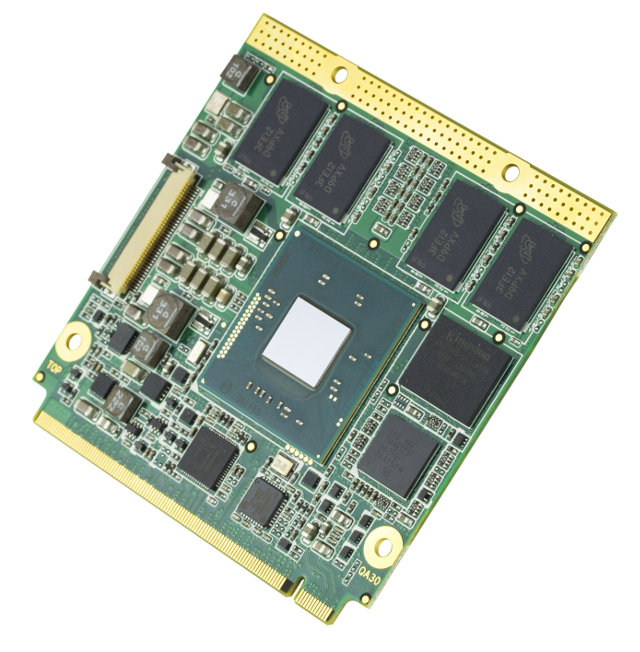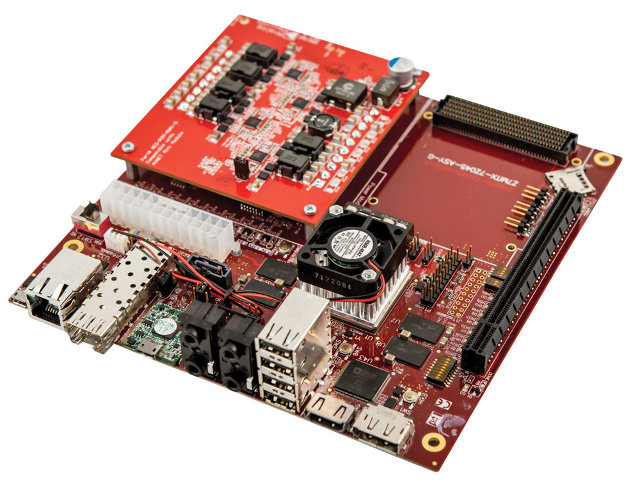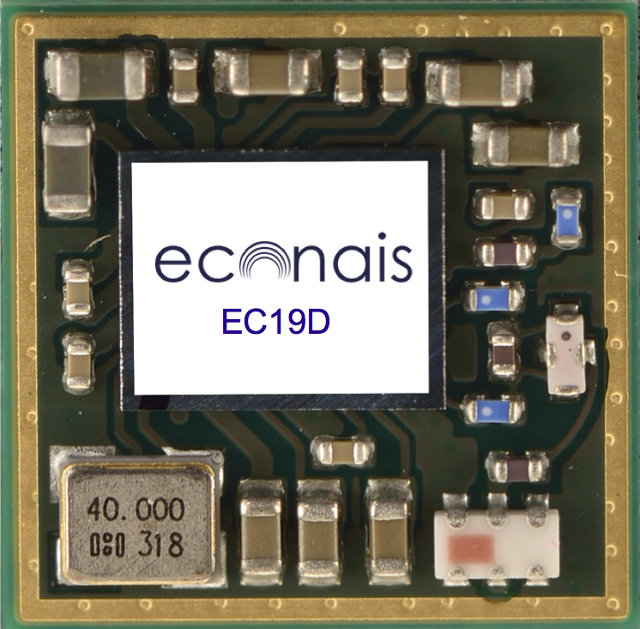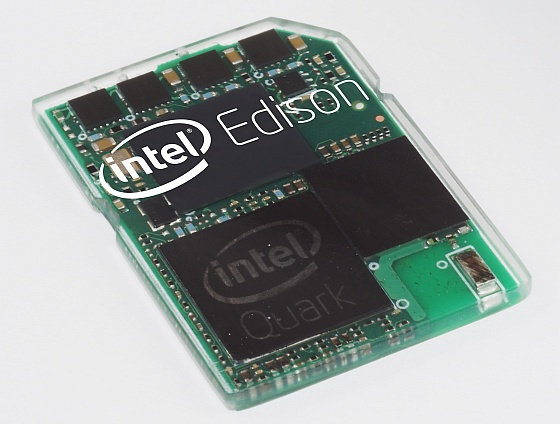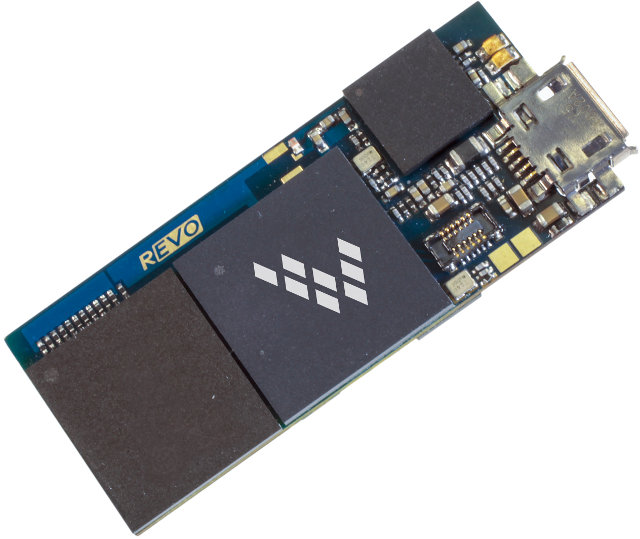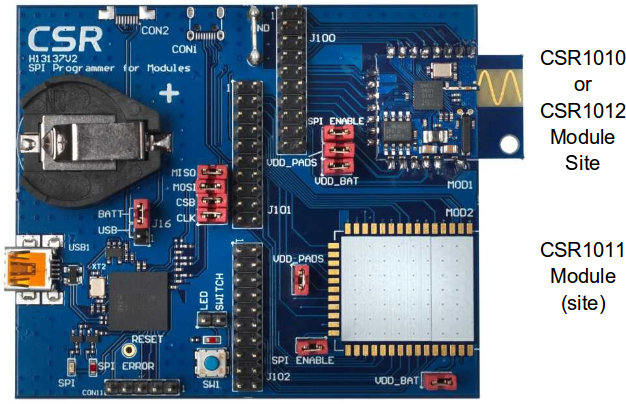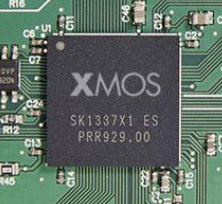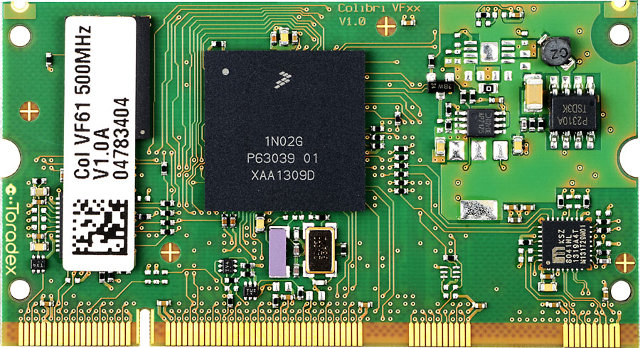Congatec has announced several computers-on-module (CoM) powered by Intel “Bay Trail” Celeron and Atom SoCs compliant with either QSeven (conga-QA3 CoM), or COM Express (conga-TCA3 CoM) standards to be used for embedded applications. conga-QA3 and conga-TCA3 specifications: SoC (Processor + Intel HD graphics + Chipset) Intel Atom E3845 (4 x 1.91 GHz, 2MB L2 cache, 10 W) Intel Atom E3827 (2 x 1.75 GHz, 1MB L2 cache, 8 W) Intel Atom E3826 (2 x 1.46 GHz, 1MB L2 cache, 7 W) Intel Atom E3825 (2 x 1.33 GHz, 1MB L2 cache, 6 W) Intel Atom E3815 (1.46 GHz, 512kB L2 cache, 5 W) Intel Celeron N2920 (4 x 1.86 GHz, 2MB L2 cache, 7.5 W) Intel Celeron J1900 (4 x 2 GHz, 2MB L2 cache, 10 W) System Memory conga-QA3 – Up to 8 GB onboard DDR3L 1333 MT/s conga-TCA3 – 2x SO-DIMM sockets for DDR3L memory modules up to […]
Xilinx Zynq-7000 All Programmable SoC Mini-ITX Development Board
Avnet has recently introduced Xilinx Zynq-7000 All Programmable SoC Mini-ITX Development Board powered by the top of the range Xilinx Zynq-7045 or Zynq-7100 dual ARM Cortex A9 + FPGA SoC with 2 GB DDR3 SDRAM, PCIe Gen2 x16 Root Complex slot (x4 electrical), SATA-III interface, 10/100/1000 Ethernet PHY, and more. Target applications include PCI Express, embedded controllers, general-purpose prototyping, networking and communications, storage and servers and video applications. Here are the motherboard specifications: SoC – Xilinx XC7Z045/XC7Z100-2FFG900 dual core ARM Cortex A9 @ 800 MHz + Kintex-7 FPGA with respectively 350K Logic Cells (~5.2M gates) and 444K Logic Cells (~6.6M gates). System Memory – 1 GB PS DDR3 SDRAM, 1 GB PL DDR3 SDRAM Storage – 32 MB of QSPI Flash, 8 KB of I2C EEPROM, SATA-III Interface, and microSD Card Interface Real-Time Clock Connectivity – 10/100/1000 Ethernet Interface Video – LVDS Touch Panel Interface, HDMI Interface Audio – Audio input […]
eConais WiSmart EC19D is an 8x8mm Wi-Fi Module for the Internet of Things
eConais, a company specializing in ultra low power embedded Wi-Fi modules, has recently announced WiSmart EC19D Wi-Fi module which it claims to be “the world’s smallest, most easily integrated, and lowest standby power single chip 802.11b/g/n Wi-Fi System In Package (SiP) modules for the Internet of Things”. This Wi-Fi module comes with the following features: Wi-Fi – 802.11 b/g/n,Wi-Fi Direct, WPS, Wi-Fi Client Mode, Wi-Fi SoftAP Mode Security – WPA/WPA2 support ProbMe Configuration – Proprietary configuration method which enables any Wi-Fi device to configure the EC19D module without the need of any application Protocol – TCP/UDP sockets, HTTPS/SSL, DHCP Client/Server MCU I/F – Serial Cloud Service Support (Xively) Concurrent DLNA Renderer & Server (Q1 2014) OTA FW Upgrade (Q1 2014) Dimensions – 8x8mm Certifications – FCC, IC, and EC There’s no data about standby power consumption, so it’s difficult to verify the company claim, however at 8x8mm, it could well […]
Intel Unveils Edison Board for Wearables at CES 2014 Keynote
After an earlier Intel presentation about Intel RealSense Technology by Mooly Eden, Intel Senior Vice President and General Manager, the newly appointed Intel CEO, Brian Krzanich, officially opened CES 2014 with the pre-show keynote. This time there was nothing about processors for PCs, and the announcement the most interesting and relevant to this blog was Intel Edison, a tiny SD-card sized board powered by a dual core Quark SoC. Specifications: SoC – Unnamed and new dual core Intel Quark SoC @ 400MHz manufactured with 22nm process technology. MCU – Unnamed Intel MCU (MCS 51??) to manage I/Os and other baseline functions. System Memory – LPDDR2 Storage – NAND Flash Connectivity – Wi-Fi and Blutooth 4.0 LE Dimensions – Just like an SD card The board will support Linux, and common open source tools used by the marker community. It will also support Wolfgram language and Mathematica. There will also be […]
Freescale Announces WaRP (Wearables Reference Platform) Powered by Freescale i.MX 6SoloLite
We’ve seen more and more wearable products recently, be it smartwaches, smart rings, fitness bands, etc.., and we can expect several announcements at CES 2014 for wearables. Freescale has just launched their Wearable Reference Platform (WaRP), comprised of the WaRPboard, a tiny board based on Freescale i.MX 6SoloLite running Android, and a daughter board with KL16 Cortex M0+ MCU and several sensors. The main chips and corresponding features on the board are as follows: Freescale i.MX 6SoloLite Cortex A9 processor @ 1GHz with 2D graphics Vivante GC355 and GC320 GPUs. KL16 Sub-Family General Purpose Cortex M0+ MCU. Xtrinsic FXOS8700CQ, 6-Axis Sensor with Integrated Linear Accelerometer and Magnetometer. Xtrinsic MMA955xL Intelligent Motion-Sensing Platform. It cane be programmed to provide freefall detection, tilt and 3-D orientation detection, tap and double tap detection, dead reckoning, shock, vibration and sudden motion detection and power management. The company expect WaRP to be used in devices such as […]
$99 CSR µEnergy Starter Development Kit for Bluetooth Smart
CSR has recently launched CSR µEnergy Starter Development Kit, a low-cost devkit based on their CSR1010, CSR1011 and CSR1012 modules for developers designing Bluetooth Smart, aka Bluetooth Low Energy, applications. Main features of CSR µEnergy Starter DevKit: Fitted with CSR1010, CSR1011, or CSR1012 module USB or CR2032 battery powered (link selectable) USB SPI interface to development PC Headers – 1x Headers for CSR1010/CSR1012 I/O, 2x Headers for CSR1011 I/O Misc – 1x push button, 1x LED Dimensions – 80x68mm PCB area The modules are based on the Bluetooth Smart ICs with the same name, and the following characteristics: CSR1010 – QFN 32 lead, 5 x 5 x 0.6mm, 0.5mm pitch CSR1011 – QFN 56 lead, 8 x 8 x 0.9mm, 0.5mm pitch CSR1012 – QFN 32 lead, 4 x 4 x 0.65mm, 0.4mm pitch All three come with 128KB memory (64KB RAM and 64KB ROM), CSR1010 and CSR1012 has 12 digital […]
XMOS xCORE-XA Octa-core ARM Cortex-M3 SoC and $14.99 StartKIT Board
XMOS is a fabless semiconductor company that specialized in multicore MCUs that delivers scalable, parallel multitasking compute, which are used in embedded applications for consumer, industrial and automotive markets. They’ve recently announced xCORE-XA (eXtended Architecture), their first MCU based on ARM technology with one ARM Cortex M3 core, and seven xCORE core, as well as a low cost development board called XMOS StartKIT featuring xCORE-A (Analog) with eight cores. XMOS xCORE-XA SoC xCore-XA is actually an octa-core MCU with the following key features: Eight 32bit processors – seven xCORE logical cores supporting DSP instructions, and an ARM Cortex-M3 processor (up to 500 MIPS in total) On-chip Memory – 192KB SRAM, and 512 or 1024KB SPI Flash depending on model. 38 I/O including I2C, SPI, ADC, DAC, op-amps, capacitive sensing comparators, and optional USB 2.0 interface. Hardware response ports – Eliminate the need for interrupts and provide up to 100x faster […]
Toradex Colibri VF50/VF61 SoMs Powered by Freescale Vybrid SoCs Sell for as Low as 19 Euros
Toradex Colibri VF50 and Colibri VF61 are system-on-modules respectively powered by Freescale Vyrbrid VF5xx Cortex A5 SoC and Vybrid VF6xx dual core Cortex A5/M4 SoC, which are part of the company’s Colibri ARM computer on modules. Toradex Colibri VF50/VF61 specifications: Processor VF50 – Freescale Vybrid VF5xx (MVF50NN151CMK40) ARM Cortex-A5 @ 400MH, 1.5MB SRAM VF61 – Freescale Vybrid VF6xx (MVF61NS151CMK50) ARM Cortex-A5 @ 500MHz, Cortex-M4 @ 167MHz, 1.0MB SRAM, and multiple hardware accelerated security features listed below. System Memory VF50 – 128MB DDR3 (16-bit, no ECC), or 64MB DDR3 with ECC (8-bit, ECC) VF61 – 256MB DDR3 (16-bit, no ECC), or 128MB DDR3 (8-bit, ECC) Storage VF50 – 128MB NAND flash VF61 – 1GB NAND flash Interfaces via the 200-pin SO-DIMM edge connector (X1): LCD RGB (24-bit), up to 1024 x 768 4-wire or 5-wire resistive touch Audio – I/O (VF61 only), SPDIF In and Out, I2S/AC97 compatibl Ehanced Serial Audio […]


